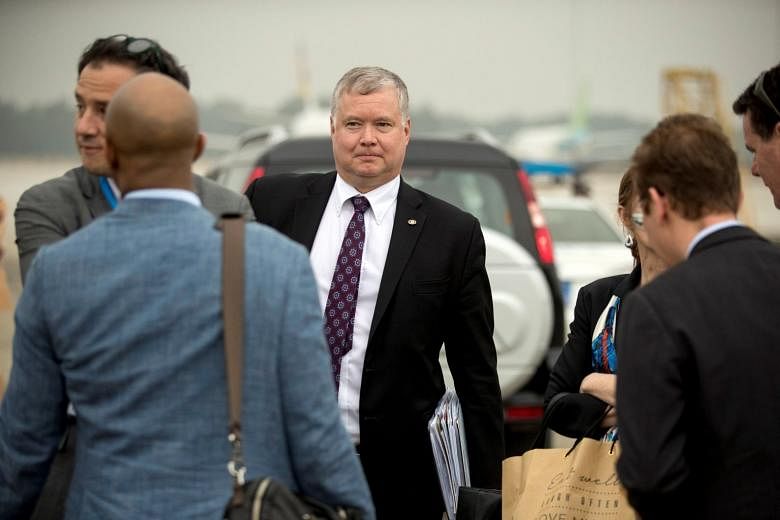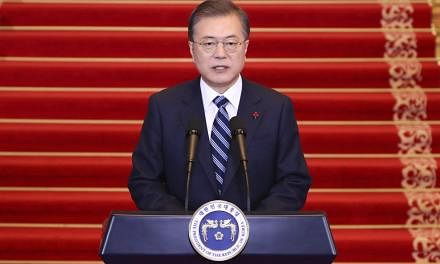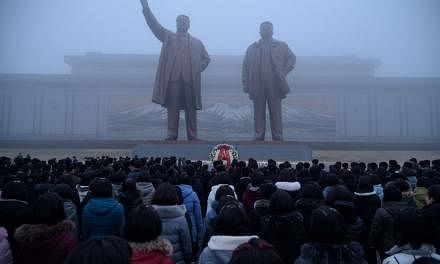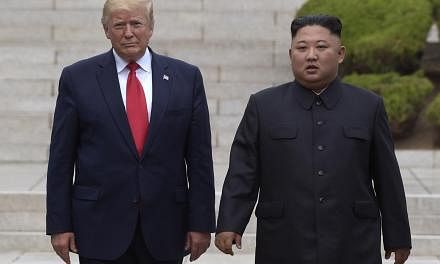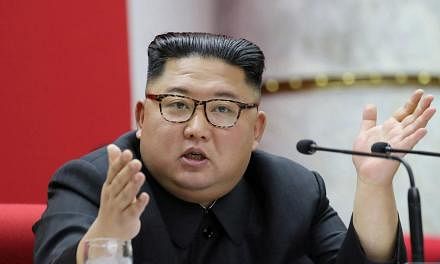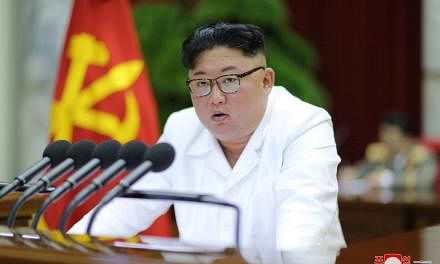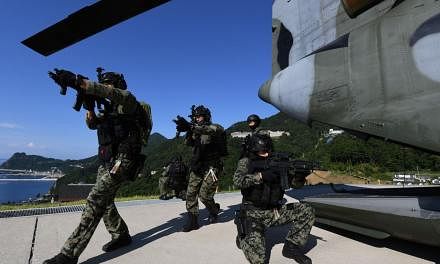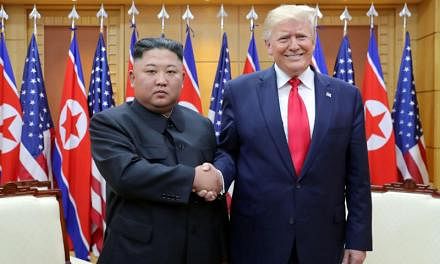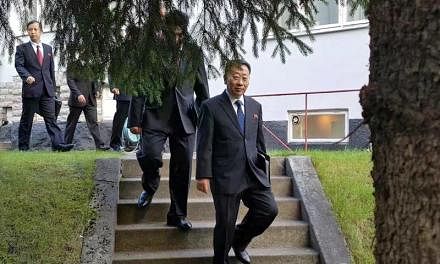WASHINGTON (AFP) - Washington's North Korea envoy Stephen Biegun was to meet on Wednesday (March 6) with officials from Japan and South Korea to discuss the outcome of the Hanoi summit last week, amid new evidence that Pyongyang is rebuilding a rocket launch site.
Biegun was to meet separately in Washington with Lee Do-hoon, Seoul's chief nuclear envoy, and Japan's Kenji Kanasugi, with a three-way meeting also expected, according to the US State Department.
Their talks take place after US President Donald Trump abruptly cut short the Feb 27-28 summit in Vietnam with North Korean leader Kim Jong Un amid fundamental differences between the two sides over dismantling North Korea's nuclear weapons programme.
The summit, their second in under a year, broke up without even a joint statement, and each sought to blame the other's intransigence for the deadlock.
Both sides pledged to continue talking, but no new meetings have been scheduled.
State Department spokesman Robert Palladino declined on Tuesday to say whether contacts between Washington and Pyongyang have resumed since the summit.
On Monday, Secretary of State Mike Pompeo said he hopes to be able to send a team to Pyongyang in "the next couple weeks," while acknowledging there had been no commitment from Pyongyang on resuming talks.
The US, Japan and South Korea were confronted with a fresh challenge when new photographs released on Tuesday appeared to show that Pyongyang may be pursuing the "rapid rebuilding" of a long-range rocket site at Sohae, after having pulled back nuclear-related activity.
The Washington-based Centre for Strategic and International Studies said the renewed activity, recorded two days after the summit, may "demonstrate resolve in the face of US rejection" of the North's request for an easing of sanctions.
The site, dormant since August 2018, "has been used in the past for satellite launches, which use ICBM technology banned under UN Security Council resolutions," CSIS said.
The State Department declined to address the reports on Wednesday.
